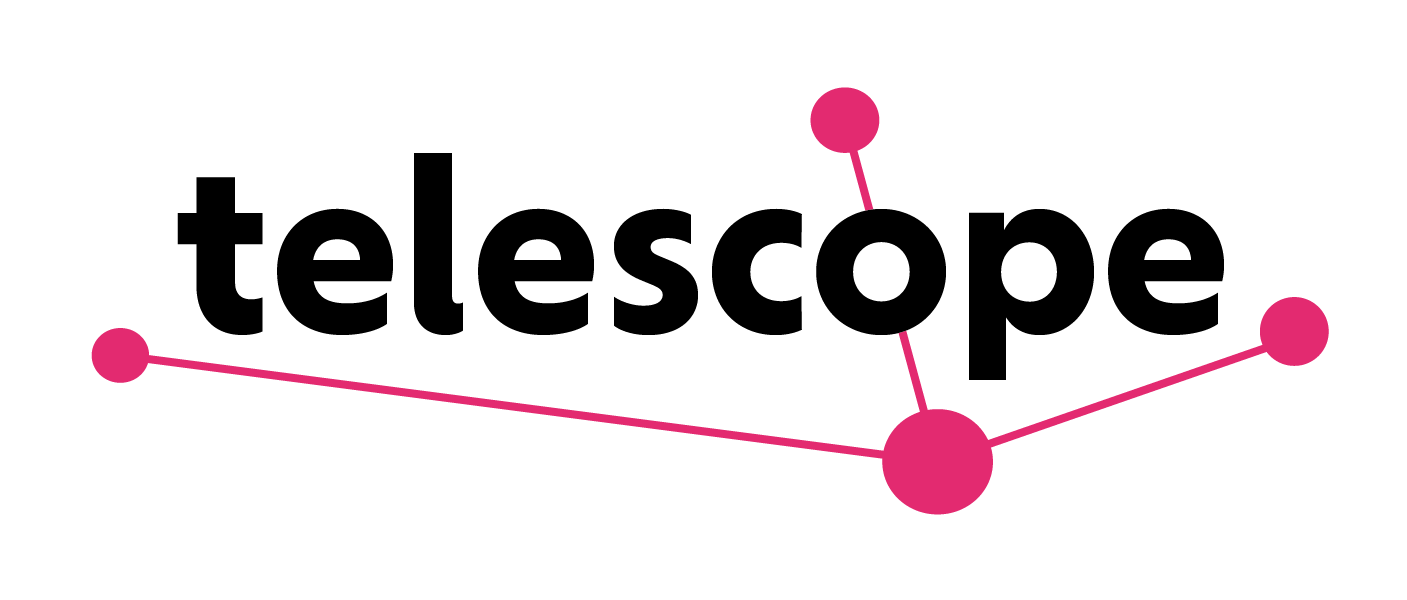A design education for the international policymaker
How can design thinking benefit policy? And how can policymakers without a specific design training learn to use these tools and methods? These are the questions we explored in our recent online workshop delivered with Apolitical, the global training platform for policymakers. With over 100 participants from all over the world - from Belfast to Bhutan, Cambridge to Capetown, Saskatchewan to Southend and Manitoba to Minneapolis - it was our most global workshop yet and we wanted to create a great learning experience for all involved.
“It’s incredible how virtual is changing the way we interact with each other.”
This remark was made by one of the workshop participants, and we couldn’t agree more. Over the pandemic, many of us have become so accustomed to online meetings that we need to refamiliarise ourselves with in person facilitation again. When we first moved our work online at Telescope, we knew that we would really need to double down on the empathy building part of our work in order to achieve the same level of connection and sharing between participants who often come from very different backgrounds and perspectives. Effective communication is a highly complex and dynamic two-way process, with constant cycles of both verbal and non-verbal feedback cues between conversation partners - all much easier to achieve when you are together in person. We know that body language is key to social interactions, and even smell has been shown to contribute to forming social bonds. By moving online, we lose these elements of interpersonal communication which can be so vital to building emotional and empathetic connection. This is why with our online Telescope programmes, we rely so heavily on creating intimate spaces with breakout rooms and active listening: a practice that involves becoming engaged and attentive on a deeper level with your conversation partner, being curious and exploring each others’ feelings and perspectives. Despite missing the physical connection of in-person meetings, we can still create emotional connection through shared experiences. As one Telescope participant described:
"Covid has shown that where there is a will, there is a way, and if we can put our heads together we can tackle these [challenges]. It’s been really helpful for me to hear people talking about their own experiences."
For our workshop with Apolitical, we had to experiment with doing things differently. With so many people in different countries, time zones and internet bandwidths, breakout rooms were not a practical option. Instead, we experimented with an observed active listening exercise, calling on two volunteers from the audience to discuss the simple question of “Why do you do what you do?” It was beautiful to witness the intimate conversation between two public servants about their motivations and values, played out to curious and compassionate fellow public servants. As one participant remarked:
“It was interesting to observe how a simple opening question can evolve into much more enlightening, deeper insights into a person.”
Our workshop was focused on the methods of design thinking, and what elements of this can be useful for developing public policies and services. One of the most useful tools of service design that we have used in Telescope programmes is journey mapping, where we walk through the end-to-end experience of a service user and identify specific touchpoints and pain points along the way. We find that the process of talking through this chronological structure is a powerful way for policymakers, frontline practitioners and people with lived experience to share insights and start the process of working collaboratively on a shared task.
While this exercise would normally take several hours or days, pulling together extensive research and insights on the ground, we wanted to nonetheless offer the Apolitical audience a taste of this useful tool in the limited time available. For this, we invited former probation officer Sarah Edwards, who is also a member of the Telescope advisory board, to share her fascinating and extensive experience of working in the probation service. We documented the process live using a Miro board and the audience was able to contribute questions and previous experiences via the chat.
Despite it being a whistlestop tour, 67% of participants felt more confident in using design methods after this short taster workshop. It also provoked some important discussion about how design methods can be applied within the public sector in a way that is genuinely meaningful and inclusive. As one participant remarked:
“How can we use this design thinking in the space of policy making - particularly the user centric design (without falling into traps of being too individualistic or only listening to the loudest voices)?”
This important question is, of course, central to the work of Telescope. Forums for policymakers like this workshop are great for building skills and common purpose among policymakers, but if we really want to challenge our thinking and change society for the better, we also need to be reaching out to the people who are not in the room (virtual or otherwise). We need to listen to those whose lives are most impacted by those policies, including those who may not always have the loudest voices. Our Connect programme is just one example of the way in which the value of building real connection, through active listening and collaboration, can help bring those voices of lived experience into the policy sector, whilst maintaining an active dialogue about what lived experience representation is and is not, and whose voices are missing.


